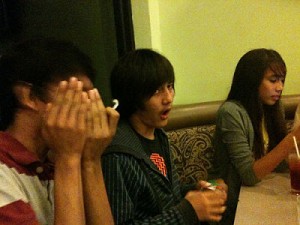 Few words strike such terror in the hearts of parents as “teenager.” On my final night in London last week I gave a talk at the London College of Spirituality entitled “Nurturing Evolution: Raising Ourselves and Our Children as Peacemakers.” Since many of the attendees were young people yet to begin families, I harnessed the fact that they were not so long ago teenagers: I invited them to connect with their “inner adolescents” and together we rode on that wave of heart connection to material I shared about the powers they have over their own cells and their own destinies — and that of children they might choose to bring in and bring up.
Few words strike such terror in the hearts of parents as “teenager.” On my final night in London last week I gave a talk at the London College of Spirituality entitled “Nurturing Evolution: Raising Ourselves and Our Children as Peacemakers.” Since many of the attendees were young people yet to begin families, I harnessed the fact that they were not so long ago teenagers: I invited them to connect with their “inner adolescents” and together we rode on that wave of heart connection to material I shared about the powers they have over their own cells and their own destinies — and that of children they might choose to bring in and bring up.
Sharing this new-science / new-thought material over several years to high-school biology students is a big part of what inspired me to frame my book Parenting for Peace in the way that I did — positioning parenting as socio-political action, or even activism. I saw the shine of possibility in their eyes…the glimmer of hope in their faces…for these young people about to inherit a world they feel virtually powerless to affect…as I dropped some of the central P4P concepts on them — such as epigenetics (they’re not at the mercy of their genes); the power of their minds to change their neurochemistry (psychoneuroimmunology); and the impressive power they’ll have to shape their baby’s brain development once they choose to create new life (prenatal psychobiology, pregnancy as Nature’s Head Start program). It’s what led me to title the first section of the book “Do You Know How Powerful You Really Are?”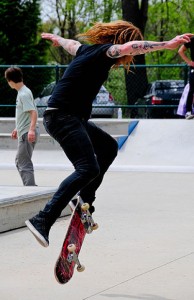
It isn’t just parents but society at large that disdains teens; the mere mention of the word usually elicits a groan or a roll of the eyes of a “God help us” sort of response. I was so glad to read this new “adaptive story” explaining adolescence (how the sometimes exasperating suite of classic teen traits — like the taste for risky behavior — evolved to elegantly prepare them to pull off the most scary, dangerous maneuver of a lifetime) as a way to help us reframe this collective aversion…and maybe cultivate more self-compassion as well. Many of us can (if we dare) still access a vivid recollection of our innermost selves during adolescence — starting around 11 or so — and recall feeling some or all of what Joseph Chilton Pearce refers to as the “trinity of expectations” harbored by the adolescent:
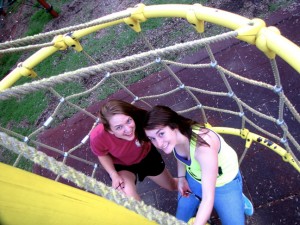 1) a poignant and passionate idealism that arises in early puberty, but which is vulnerable to erosion under the relentless pumice of adult (and, sadly, peer) cynicism that mocks and derides such lofty imaginings. As I write in Step Seven of the book, “One of the ongoing sorrowful stories of our culture, and thus one of the great areas of opportunity in consciously parenting for peace, is how a child’s sense of power, optimism and idealism at age eleven can become so shattered by age fifteen.”
1) a poignant and passionate idealism that arises in early puberty, but which is vulnerable to erosion under the relentless pumice of adult (and, sadly, peer) cynicism that mocks and derides such lofty imaginings. As I write in Step Seven of the book, “One of the ongoing sorrowful stories of our culture, and thus one of the great areas of opportunity in consciously parenting for peace, is how a child’s sense of power, optimism and idealism at age eleven can become so shattered by age fifteen.”
2) a sense of a hidden greatness within — a secret knowing that he or she has some unique, extraordinary purpose. But rather than models to reinforce the noble truth behind this elusive knowing, and to support teens in finding their way to their unique paths of service and contribution to the world, they are too often offered counterfeits by our culture: stuff to buy, buttons to push, substances to take — to numb their unmet need for models of greatness.
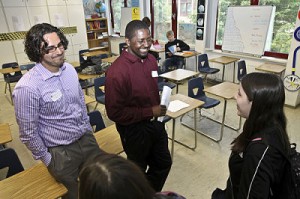 I was reminded while watching the inspiring Colin Powell this morning on The View that psychologist Julius Segal, noted for his pioneering research on youth resilience, reviewed studies from around the world and concluded that the single factor that most strongly protects children from being overwhelmed by stress is “the presence in their lives of a charismatic adult — a person with whom they identify and from whom they gather strength.” The adult need not necessarily have Colin Powell charisma, but perhaps the quieter kind which can emanate from a combination of self-possession (a quality teens so dearly, if unfairly, crave in their significant adults), an engaged inner and outer life, and sincere, unqualified interest in the teen. As I write in the book,
I was reminded while watching the inspiring Colin Powell this morning on The View that psychologist Julius Segal, noted for his pioneering research on youth resilience, reviewed studies from around the world and concluded that the single factor that most strongly protects children from being overwhelmed by stress is “the presence in their lives of a charismatic adult — a person with whom they identify and from whom they gather strength.” The adult need not necessarily have Colin Powell charisma, but perhaps the quieter kind which can emanate from a combination of self-possession (a quality teens so dearly, if unfairly, crave in their significant adults), an engaged inner and outer life, and sincere, unqualified interest in the teen. As I write in the book,
It is at this moment right here, as the teen years unspool, that even the most well-meaning parents often veer off-course. A common and dangerous misconception is that the teenager — so capable, so independent, so grown up! — no longer needs close tending by parents and other adults. The fact that the adult-looking adolescent is as developmentally tender as the infant is ignored, trammeled by the ubiquitous media portrait of the sexually sophisticated, mentally adept, socially adroit teen. A treacherous mistake for raising Generation Peace, made in our culture in epidemic proportions, is to “drop” our teens and leave them to their own devices.
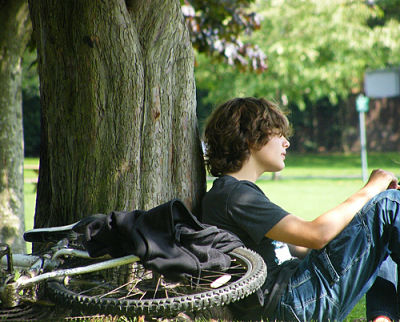 3) arising in the middle to late teen year is the sense that something tremendous is supposed to happen. It is as if Nature has imbued them with a deep-seated inkling of the magnificent leap that is possible if everything goes to plan with optimal development of the prefrontal lobes of the brain. Pearce writes that “the development of these new prefrontal additions should ideally result in a mind that is so remarkably different from the one we operated with before that it would present to us in full the biological possibility of transcendence” — perhaps what Rudolf Steiner referred to as the ability to “know higher worlds.” But once again — as with so many of the developmentally sensitive windows of transcendent evolutionary potential — our sociocultural circumstances and practices have led us to thwart “something tremendous” and tacitly encourage our adolescents to settle for far less.
3) arising in the middle to late teen year is the sense that something tremendous is supposed to happen. It is as if Nature has imbued them with a deep-seated inkling of the magnificent leap that is possible if everything goes to plan with optimal development of the prefrontal lobes of the brain. Pearce writes that “the development of these new prefrontal additions should ideally result in a mind that is so remarkably different from the one we operated with before that it would present to us in full the biological possibility of transcendence” — perhaps what Rudolf Steiner referred to as the ability to “know higher worlds.” But once again — as with so many of the developmentally sensitive windows of transcendent evolutionary potential — our sociocultural circumstances and practices have led us to thwart “something tremendous” and tacitly encourage our adolescents to settle for far less.
Last Thursday night I witnessed a moving portrayal of this high-stakes developmental window of the adolescent, lucky as I was to attend Mike Nichols’ Broadway revival of Death of a Salesman. Not only was Arthur Miller one of our finest playwrights, he clearly had a deep understanding of human development at this tender turning point: eighteen years of Willy Loman’s lavish attention, praise and dreams for his golden-boy son cannot trump the shattering disheartenment Biff suffers when confronted with the fleshy proof that his father is less than golden.
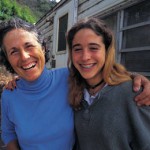 It is who we are far more than what we do (or say) that nourishes, shapes and inspires our children, beginning when they are tiny and continuing when they tower over us.
It is who we are far more than what we do (or say) that nourishes, shapes and inspires our children, beginning when they are tiny and continuing when they tower over us.
*******
By Marcy Axness, PhD, author of Parenting for Peace: Raising the Next Generation of Peacemakers
Sources:
Dobbs, David. “Beautiful Brains.” National Geographic, October 2011, 37-59.
Pearce, Joseph Chilton. The Biology of Transcendence: A Blueprint of the Human Spirit. Rochester, VT: Inner Traditions, 2002.
Neufeld, Gordon, and Gabor Maté. Hold on to Your Kids: Why Parents Need to Matter More Than Peers. New York: Ballantine, 2006.
Images (in order of appearance, under Creative Commons license):
laurelephant
Valerie Everett
Morguefile / attribution-free
USACE Europe District
slightly everything
Tags: adolescent brain, adult role models, mentoring, resilience, risk-taking, teen idealism, teens


